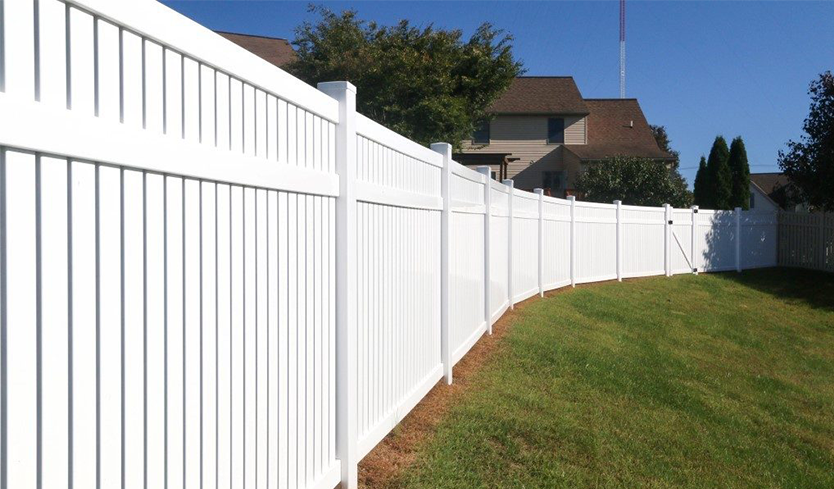Binghamton HUD Housing Repair Grants: How to Qualify
Binghamton HUD Housing Repair Grants: How to Qualify homeownership is a dream for many, but it comes with its share of responsibilities. Over time, homes require repairs and maintenance, some of which can be expensive. For residents in Binghamton, the Binghamton HUD housing repair grants offer a crucial lifeline to assist with those repairs, especially for low-income households. These grants, part of the U.S. Department of Housing and Urban Development (HUD) initiatives, aim to improve the safety and quality of housing while enhancing the community’s overall well-being.
Whether it’s fixing a leaking roof, updating plumbing, or ensuring energy efficiency, these grants are designed to ease the financial burden of home repairs for qualifying homeowners. In this article, we’ll explore everything you need to know about Binghamton HUD housing repair grants, from eligibility criteria to the application process and beyond.
What Are Binghamton HUD Housing Repair Grants?
Binghamton HUD housing repair grants are financial assistance programs administered by the U.S. Department of Housing and Urban Development to help homeowners cover the cost of essential repairs and improvements. These grants are available to low-income residents, with the goal of making their homes safer, more comfortable, and more energy-efficient. Unlike loans, these grants do not need to be repaid, which makes them an invaluable resource for those who may struggle to afford costly repairs.
The grants cover a wide range of home repairs, including:
- Structural repairs (e.g., fixing roofs, foundations, or walls)
- Energy-efficient upgrades (e.g., insulation, windows, or heating systems)
- Health and safety-related repairs (e.g., plumbing issues, electrical hazards, lead removal)
These programs often target vulnerable populations, including seniors, individuals with disabilities, and low-income families, to help them stay in their homes longer and improve their living conditions.
Why Are These Grants Important?
The cost of home repairs can be overwhelming, especially for those who live on a fixed income or are facing financial difficulties. Without assistance, critical home repairs might go unaddressed, which can lead to further damage, increased repair costs, or even safety risks. Binghamton HUD housing repair grants fill this gap by providing financial support to homeowners who need it the most.
These grants not only help improve the condition of individual homes but also contribute to the overall health and stability of neighborhoods. By investing in home repairs, the city of Binghamton can improve the quality of life for its residents while strengthening the local community and reducing the number of homes that fall into disrepair.
Who Qualifies for Binghamton HUD Housing Repair Grants?
To receive Binghamton HUD housing repair grants, applicants must meet certain eligibility requirements. While these requirements can vary depending on the specific grant program, there are a few key factors that most HUD housing repair grants take into account:
1. Income Level
The most important factor in determining eligibility for Binghamton HUD housing repair grants is the applicant’s income. These grants are primarily intended to assist low-income homeowners. Typically, your household income must fall below a certain threshold, which is usually based on the area’s median income (AMI). For example, if your income is below 80% of the AMI for Binghamton, you may qualify for assistance.
Income documentation, such as recent tax returns, pay stubs, or proof of benefits, will likely be required as part of the application process.
2. Homeownership Status
HUD housing repair grants are generally only available to homeowners, meaning that renters are not eligible for these programs. Homeowners must also live in the property as their primary residence. If you are renting out the home, it may not be eligible for repair grants, as these programs are designed to help individuals maintain their own homes.
3. Age and Disability Status
Certain programs within the Binghamton HUD housing repair grants initiative prioritize homeowners who are seniors (typically over 62 years old) or individuals with disabilities. These groups often face unique challenges when it comes to maintaining their homes, making them more likely to qualify for these types of grants.
Seniors may need repairs or modifications to age-in-place safely, such as installing wheelchair ramps or updating bathroom facilities for easier access. Likewise, individuals with disabilities may need specialized improvements to make their homes more accessible and comfortable.
4. Property Location
In some cases, the eligibility for Binghamton HUD housing repair grants may depend on the location of the property. The program often targets specific neighborhoods or areas within Binghamton that are in need of revitalization. Homeowners living within these designated areas are more likely to qualify for grant assistance, as the goal is to help improve specific neighborhoods and enhance their overall living conditions.
5. Condition of the Home
The home must require necessary repairs for the applicant to qualify for these grants. This could include structural issues, energy inefficiency, or health and safety concerns, such as plumbing problems, mold, or outdated electrical wiring. If your home has minor cosmetic issues, it may not be eligible for funding. However, if the repairs are essential for safety or habitability, you may be able to receive assistance.
6. Previous Participation in the Program
Some Binghamton HUD housing repair grants may limit eligibility for individuals who have already received grant funding in the past. For instance, there may be restrictions on how often homeowners can apply for these grants. If you’ve previously received a grant for home repairs, you may need to wait a certain period before applying again.
How to Apply for Binghamton HUD Housing Repair Grants
If you meet the eligibility criteria, applying for Binghamton HUD housing repair grants is the next step. The application process can be straightforward, but it’s important to understand the steps involved and what documentation you will need to provide.
1. Research Available Programs
Binghamton offers various housing assistance programs that may include repair grants. Start by researching which programs are available through local government agencies, such as the City of Binghamton’s Department of Housing and Community Development or other local non-profits. Each program may have different requirements and funding levels, so it’s essential to determine which one fits your needs.
2. Gather Documentation
Once you’ve identified the right program, gather the necessary documentation to prove your eligibility. Typically, you will need the following:
- Proof of income (e.g., tax returns, pay stubs, or Social Security statements)
- Proof of homeownership (e.g., deed, mortgage documents, or property tax records)
- Identification documents (e.g., driver’s license or state-issued ID)
- Proof of disability or age (if applicable)
- Estimates for the work you intend to complete
Make sure to double-check the requirements for each specific program, as some may ask for additional documentation or proof of repair needs.
3. Complete the Application
Once you have all the necessary documents, fill out the application for the program. Be sure to provide accurate information and include all required documents. An incomplete or incorrect application may delay the process or result in rejection, so it’s important to be thorough.
4. Submit the Application
Submit your completed application according to the program’s instructions. Some programs allow for online submissions, while others may require you to submit your application in person or by mail. Make sure to follow the instructions carefully to avoid any mistakes.
5. Wait for Approval
After submitting your application, it will be reviewed by the relevant authorities. Depending on the program, this may take several weeks or even months. During this time, you may be contacted for additional information or clarification. Be patient, and check in periodically to ensure that your application is moving forward.
If your application is approved, you will receive notification and information about the next steps. Depending on the program, you may receive a lump sum of funding or be reimbursed for your expenses after the work is completed.
Tips for Maximizing Your Chances of Approval
While the application process can be competitive, there are a few things you can do to improve your chances of receiving Binghamton HUD housing repair grants:
1. Ensure Your Home Needs Essential Repairs
The grants are designed for homes in need of critical repairs. Make sure your home qualifies for the program by ensuring that the issues you’re addressing are related to safety, habitability, or energy efficiency.
2. Get Multiple Quotes for Repairs
For certain programs, especially those related to large-scale repairs, you may be asked to provide quotes from licensed contractors. Getting multiple estimates can help show that you’re making an effort to keep costs down and will demonstrate that you’re taking a responsible approach to home repairs.
3. Be Thorough with Your Documentation
In order to expedite the approval process, ensure that all required documents are included and that they are complete. Missing or incomplete information can lead to delays or denials.
4. Follow Up on Your Application
Once you’ve submitted your application, don’t hesitate to follow up with the program administrators. This shows that you’re actively engaged in the process and may help ensure that your application is moving through the system.
Binghamton HUD housing repair grants provide a valuable opportunity for low-income homeowners in Binghamton to make essential repairs to their homes. By understanding the eligibility criteria and following the application process, you can secure the funding needed to maintain a safe and comfortable living environment. Whether you’re dealing with a leaky roof or outdated electrical wiring, these grants offer a way to enhance your home and ensure it remains a place of stability and comfort for you and your family.
Don’t let the costs of repairs hold you back. With the right knowledge and preparation, Binghamton HUD housing repair grants can make your home improvements more affordable and accessible. Start your application process today and take the first step toward a safer, more comfortable living space.








